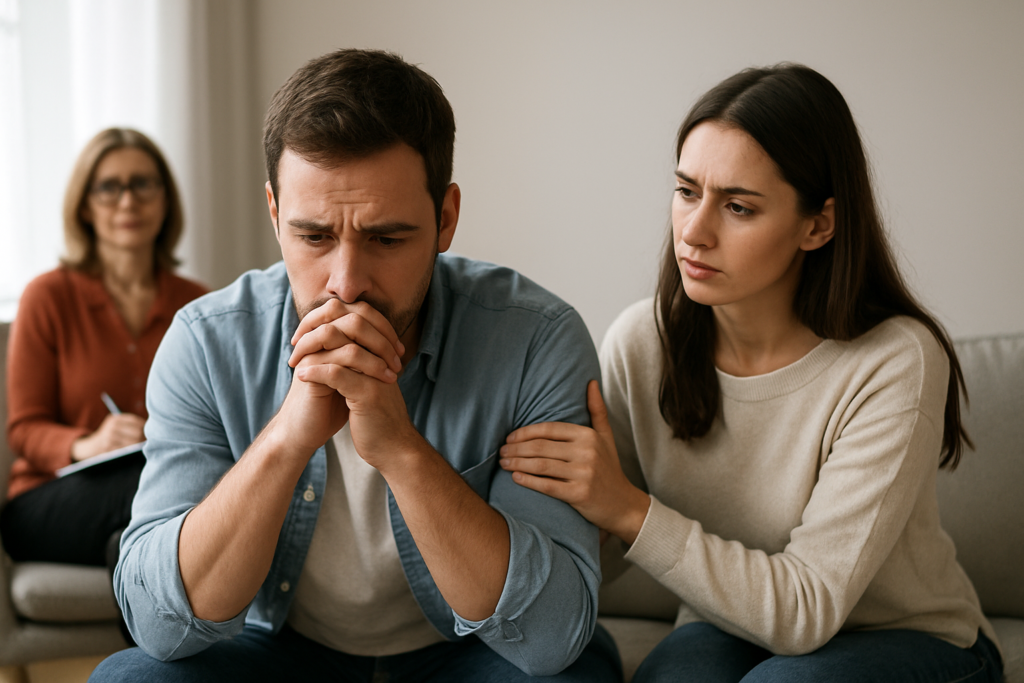
As more couples seek emotional support, the outdated stigma surrounding couples counselling is finally being questioned.
Shifting Perspectives on Love and Help-Seeking
For generations, the idea of seeking therapy—especially relationship therapy—was seen as a last resort. If a couple needed outside help, it was assumed the relationship must be failing. But this narrative is slowly losing traction, particularly among younger Australians who are more open to addressing emotional wellbeing, both individually and in their partnerships.
Couples counselling is no longer just for those on the brink of separation. It’s increasingly recognised as a proactive way to strengthen communication, develop deeper emotional understanding, and grow as a team. In an age where emotional literacy is being prioritised, it makes sense that relationship care is following suit.
This shift is also being driven by open dialogue in modern media, podcasts, and platforms like DownGPT’s own reflections on emotional unavailability, all pointing to a cultural movement away from suppression and towards expression.
Where the Stigma Comes From – Cultural and Social Roots
To understand why some people still resist couples counselling, it helps to look at where that hesitation began. Historically, many cultures have placed a strong emphasis on keeping family or relationship matters private—what happens behind closed doors was no one else’s business. Seeking help was often interpreted as weakness, especially for men who were raised to be stoic and emotionally restrained.
The media hasn’t helped either. From soap operas to sitcoms, therapy sessions are often depicted as dramatic interventions that happen just before a breakup or divorce. That visual reinforces the false idea that therapy is a reaction to failure rather than a method of preservation.
Older generations may also have grown up without exposure to mental health care. If they didn’t see their parents seeking help or talking about emotions openly, the idea of sitting with a counsellor can feel foreign or even threatening.
The Silent Suffering – How Avoiding Help Makes It Worse
Despite how common relationship tension is, many couples suffer in silence. They avoid confrontation, suppress feelings, or cling to a routine while resentment builds underneath. This kind of quiet disengagement often leads to emotional disconnection, lack of intimacy, and ultimately—emotional burnout.
Left unaddressed, even minor issues can evolve into recurring patterns. One partner might withdraw while the other becomes increasingly critical. Conflicts begin to repeat with no resolution, and both individuals end up feeling unseen or unheard.
Instead of waiting for breaking point, some couples are now choosing to navigate relationship challenges with couples counselling as a way to prevent deeper emotional disconnect. Rather than ‘fixing’ the relationship, counselling provides a safe space for both partners to feel heard, clarify their needs, and build better strategies for working together.
The Rise of Conscious Relationships
We’re living in an era where the term “conscious relationships” is gaining momentum. This approach centres on self-awareness, emotional accountability, and mutual respect. Rather than trying to change each other, couples who take a conscious approach are focused on understanding themselves and how they show up in the relationship.
Couples counselling supports this mindset by introducing tools like active listening, emotional regulation, and values alignment. It’s no longer about who’s right or wrong—it’s about creating a relationship where both people feel safe, supported, and understood.
Importantly, therapy is no longer reserved for heterosexual married couples. Relationship counselling may support co-parents, long-term de facto partners, queer couples, polyamorous dynamics, or even friends navigating complex boundaries. The accessibility and inclusiveness of modern therapy make it more relevant than ever.
You’ll even find echoes of this mindset in broader lifestyle discussions—such as how emotional intelligence shapes dating habits and the growing emphasis on mindful communication.
From Taboo to Trust – Stories of Couples Who Made It Work
Consider Sarah and Tom, who found themselves constantly arguing after the birth of their second child. The sleep deprivation, changing routines, and shift in priorities led to distance. They feared that attending couples counselling would confirm their worst fear: that something was “wrong” with them. But the process had the opposite effect.
They discovered that their issues weren’t personal failings—they were facing common challenges that simply needed attention. Through guided sessions, they learned how to communicate better, express appreciation, and realign their goals as a team.
Then there’s Marcus and Eli, a same-sex couple navigating trust issues after a difficult period of long-distance separation. Counselling helped them rebuild connection, identify boundaries, and re-establish a sense of emotional safety—without judgement.
These are not fairy tale endings. They are real stories of people choosing to stay in the discomfort long enough to find clarity, not perfection.
Talking About Therapy Is the First Step
Breaking the silence around couples counselling begins with normalising the conversation. When we start treating relationship support like we do physical health check-ups—routine, preventive, and important—we remove the shame and invite honesty.
It’s okay to admit when something feels off. In fact, it may be one of the most courageous things you do for your relationship. Whether you’re navigating conflict, rebuilding intimacy, or simply learning how to grow together, the support is there—you just have to be willing to seek it.